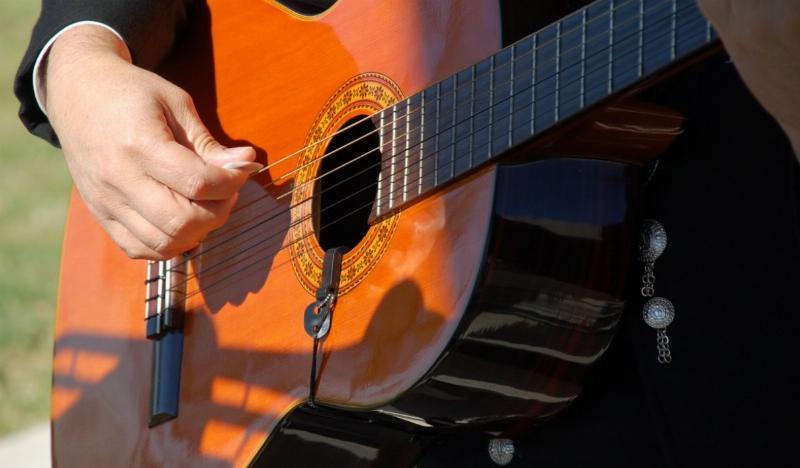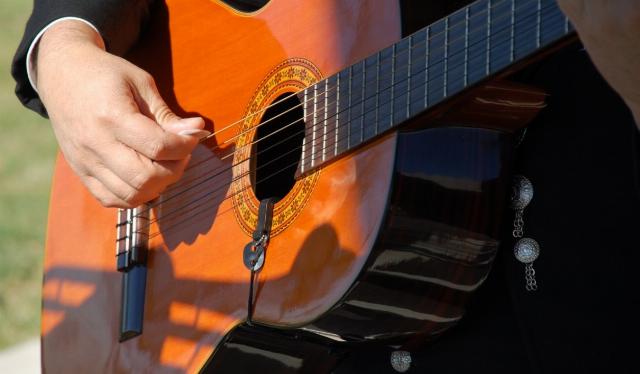


Recently, the New York Times published a list of the “best 100 films” of the 21st century. Not only had I never seen any of the top ten (except for No Country for Old Men, which is not so much morally serious as it is malevolent), but I had never heard of any of them. This may have been, in part, the kind of films the Times chose, but it was also because of the kind of films that are being made these days in general.
I do watch movies, though, with Jimmy Stewart and Jean Arthur as my favorite actor and actress. Since Jimmy Stewart and Jean Arthur are no longer making films, there is not much among new films to watch. I exaggerate, but you get the idea.
Although I’m no longer a film buff, I am very much a traditional music buff, especially with regard to the Scotch and Irish ballad tradition. The ballad melodies are simply beautiful, which is why many of them have been preserved for hundreds if not thousands of years. These haunting melodies send a chill down the spine. We are, after all, listening to some of mankind’s earliest preserved melodic phrases — some of which were popular long before the European discovery of the Americas.
Along with the melodies are the words. The ballad lyrics afford an entrance into a pre-modern worldview and a set of values quite different from our own. By listening to the ballads, we can step outside our materialistic and permissive culture and enter one in which resources, opportunities, and choices were quite limited, and in which decisions are irrevocable. In contrast to our permissive culture in which everyone from teachers to retailers to law enforcement is trained to be user-friendly and approachable, the world of the ballads is harsh, realistic, and often tragic. It is also beautiful in a way that modern culture, such as the N.Y. Times top 100 films of this century (from what I have read of them), can never be.
The best known of these ballads is perhaps “Barbara Allen.” The song describes how Barbara Allen rejects the love of a dying man, Jemmy Grove, then herself dies out of grief and regret. There is nothing “smiley” about this or any of the other best known ballads. The woman has made a horrible mistake for which she alone is responsible, and for which she suffers the consequences after recognizing what she has done. There is no second chance, and there is no way out.
That irrevocable situation is typical of the traditional ballad, probably because it was the nature of pre-modern society itself. There was no state-run safety net to fall back upon (and no state-run grocery stores or rent freeze). For a large part of society, there was the certainty that one would go hungry and become ill, and the likelihood that one would die of hunger or exposure. One mistake was enough to cause permanent harm.
What makes “Barbara Allen” particularly heart-rending is the fact that the young woman is summoned to the bedside of a dying suitor, who pleads his love and whom, on his deathbed, she rejects, only to die herself after hearing the church bells tolling out his death. On their graves are planted a rose (on his) and a briar (on hers), which then twine together as a symbol of undying love.
No song could better epitomize the ballad tradition, in which love is most often unhappy, the result of the regrettable decision of one of the lovers or from a set of circumstances beyond their control (such as a parent opposing the marriage). Unlike modern narratives, in which there are always choices and the consequences are rarely grave, in the ballads, there is only one opportunity for happiness, and it is often lost. It’s also true that in the ballads there is only one “true love” — no “getting over it” and moving on to another, and for this, the ballads are all the more beautiful and true. Despite what we may think we believe as sophisticated moderns, more often than not, there is only one true love and only one chance at happiness. The ballads are truer than we think.
“As I Roved Out” dates back to the time of the Napoleonic Wars and makes reference to the stationing of British troops in Spain. This ballad is a love story, quite different from our more recent Love Story, though closer perhaps to Roman Holiday, what with the disturbing realism of its ending. The realism of this ballad is chilling: A British soldier becomes engaged to a young woman of 17, who (in some versions of the song) becomes pregnant and whom the soldier abandons to marry “the lassie who has the land.” As he says, he will regret this “foolhardy” decision for the rest of his life, and he lives in hopes that he will at least see his true love once again.
In a moment of foolishness, the soldier has given way to the temptation of riches over love, and his decision is irrevocable. There is no such thing as a quickie divorce and no way to avoid the bitter taste each night of lying down with “brass” instead of “gold.” The song’s conclusion leaves us with a bitter taste of reality. It is unlikely that the soldier will find a way out of his predicament — or even that he will ever see the girl he loves again.
The general impression is that in modern stories, even those going back as far as entertaining films such as It Happened One Night (1934), Bachelor Mother (1939), and Gone with the Wind (1939), there is a happy ending, or at least the possibility of such. (As for getting Rhett Butler back, Scarlett says, “I’ll think about that tomorrow.”) Modern life may not be exactly perfect, but it is not irrevocably bitter, as the ballads tend to be, and as such, it is not entirely serious or responsible. Few today would subscribe to the idea that in our lifetime we are granted a very limited number of choices and that bad choices always lead to long-term unhappiness if not tragedy and death. And yet they do.
Instead, we are led to believe that there is always a do-over and that even if we make serious mistakes, like choosing the wrong partner in life, there are always solutions. The ballads, I believe, are not only more beautiful, what with their emotional depth, but also more true. There are mistakes that can haunt one ’til the end of one’s life and for which one pays a heavy price.
Of course, there are many times when the truth of our fragile condition shines through. A friend is killed in an auto accident; a celebrity like Toby Keith is struck by cancer, and within months he is dead; a parent suffers ceaseless pain from arthritis; a career is marred as a result of one poor decision. There is more than enough material here for endless mournful ballads, but we willfully ignore it. At the core of our culture is a belief in progress: Things are getting better all the time, and if there are setbacks, they are just that — setbacks.
What do the ballads advise? Recognize one’s mistakes, accept the consequences, and attempt to live, albeit with the knowledge that one has forever lost one’s chance, or part of one’s chance, at happiness. No wonder I prefer “Barbara Allen” to Woody Allen.
Jeffrey Folks is the author of many books and articles on American culture including Heartland of the Imagination (2011).

Image via Pxhere.
